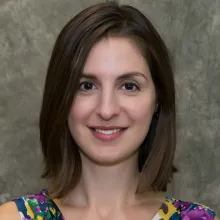Clinic Details
The Gender Justice Workshop’s mission is to actualize a world where everyone enjoys empowerment, equality, and equity, regardless of their age, legal status or gender, in all spheres of life. The Workshop seeks to accomplish this goal in two ways: First, by partnering with international and grassroots organizations to provide research and advocacy to influence decision-makers and promote policies centered on gender justice. And second, by providing transformative experiential learning opportunities to train and prepare students to engage with contemporary issues in law and policy pertaining to gender justice in their future careers.
The Gender Justice Workshop grows out of the work of the University of Arizona College of Law’s Domestic Violence Law Clinic (DV Law Clinic), which has represented survivors of intimate partner violence in family and protection order cases as well as partnered with local and national organizations in systemic change work to improve the landscape for survivors. For example, students in the DV Law Clinic analyzed the Australian government’s approach to creating a national data base of domestic violence homicides and created summarized recommendations for U.S. policy-makers to learn from Australia’s successes in this arena. The Gender Justice Workshop expands this systemic change work to address a broader range of issues related to gender justice, including reproductive justice and health, the intersection between climate change and gender justice, and gender justice in land governance.
Collaborators of the practicum in 2023-2024 include members of the Committee on the Elimination of Discrimination against Women (CEDAW), Human Rights Watch, and grassroots organizations working in countries across the globe.
Students currently enrolled in the workshop are assisting CEDAW in its primary function of monitoring progress made by State Parties in implementing their obligations under the CEDAW treaty. In conducting this work, students review the reports submitted by state parties outlining their actions, challenges, and progress in eliminating discrimination based on gender. Workshop students also conduct additional, supplementary research on countries being monitored, including the legal and policy framework governing discrimination on the basis of sex, gender identity, and sexual orientation; data on gender-based violence, political participation, education, employment, health, and access to justice; and the responsiveness of judicial systems, oversight mechanisms, and human rights institutions in addressing complaints and providing redress against gender-based discrimination. This work culminates in a report and presentation documenting findings and suggesting recommendations on implementing specific aspects of the CEDAW treaty.
Students in the workshop also contribute to reports for UNICEF on issues such as child migration and access to rights along migration routes. These reports explore the continuum of rights, protection, and care, identifying significant gaps, weaknesses, and inconsistencies in the systems meant to safeguard migrant children. The research highlights the importance of adopting a whole-of-route perspective, recognizing that children in migration often face heightened vulnerability in transit countries that may inadvertently become de facto destinations.
The workshop equips students with the skills to analyze complex legal and policy challenges, while advancing trauma-informed, child-centered approaches to promote the rights and welfare of children on the move.
Organizations interested in partnering with the Children’s Rights & Gender Justice Workshop are welcome to contact the Director, Negar Katirai, to propose possible collaborations to advance the Workshop’s mission of actualizing a world where everyone enjoys empowerment, equality, and equity, regardless of their gender, gender expression, or sexual orientation.
"The Gender Justice Workshop gave me a new perspective and widened the lens through which I view many legal issues. From learning about trafficking on an international scale, to deep diving into specific countries and their responses to gender issues, to analyzing various international legal instruments and treatises that protect women and girls, I am now able to utilize a global view when thinking about gender justice."
-Abigael M.
"This workshop was transformative for me and helped me realize I have a strong interest in international law. I had the opportunity to delve into the complexities of contemporary issues related to gender equality around the globe through a unique experiential learning opportunity, blending theoretical discussions with hands-on projects. My favorite part of the workshop was preparing country reports for the UN’s Committee on the Elimination of Discrimination against Women (CEDAW)."
-Susan L.
Leadership

Negar Katirai is the Director of the Gender Justice Workshop at the University of Arizona’s College of Law and a Visiting Fellow at the European University Institute. As Director of the Gender Justice Workshop, Ms. Katirai supervises law students in conducting research and advocacy to influence decision-makers and promote policies to advance child welfare as well as gender empowerment, equality, and equity. Ms. Katirai has also supervised students in providing legal representation to victim-survivors of intimate partner violence, including helping survivors obtain orders of protection against their abusers and advising them on custody, housing, and immigration law issues.
Professor Katirai’s scholarship blends rigorous legal analysis with practical solutions to support vulnerable populations. Drawing on her interdisciplinary training in law and public health, she prioritizes trauma-informed approaches to craft legal and policy solutions that address the multifaceted challenges faced by marginalized communities.
Ms. Katirai was awarded a Fulbright to study Domestic Violence Fatality Reviews in Australia in 2022. She has been recognized for her community contributions and scholarship by the Women’s Foundation of Southern Arizona and by her peers as a Distinguished Public Service Scholar. She also teaches Family Law and a Seminar on Intimate Partner Violence and its Impact on Children.
